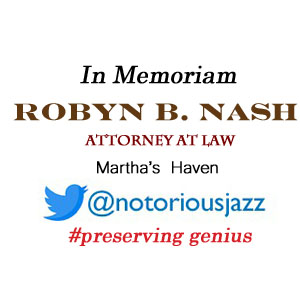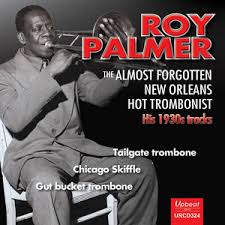
Daily Dose Of Jazz…
Roy Palmer was born on April 2, 1887 in New Orleans, Louisiana. He began his career in 1906 in New Orleans as a guitarist with the Rozelle Orchestra. He played trumpet and then trombone with Richard M. Jones, Freddie Keppard, Willie Hightower, Tuxedo Brass Band, and Onward Brass Band.
In 1917 he left New Orleans and moved to Chicago, Illinois where he worked with King Oliver, Lawrence Duhe, and Doc Cook. Palmer recorded with Johnny Dodds, Jelly Roll Morton, Ida Cox, the Alabama Rascals, and the State Street Ramblers.
In the 1930s, he was a factory worker and music teacher. Trombonist Roy Palmer died on December 22, 1963 in Chicago.
More Posts: educator,history,instrumental,jazz,music,trombone

Daily Dose Of Jazz…
Minor Hall was born in Sellers, Louisiana on March 2, 1897 and was the younger brother of Tubby Hall. He studied at New Orleans University until 1914, then began playing with Kid Ory in the middle of the decade. He played in various New Orleans ensembles, including the Superior Band, then moved to Chicago, Illinois in 1918. He briefly took his brother’s spot in Lawrence Duhe’s band before serving in the U.S. Army during World War I. By the time he returned, King Oliver was leading Duhe’s band, which Hall rejoined in 1921.
In 1926 he played with Jimmie Noone, then moved to California for an extended run with Mutt Carey’s Jeffersonians from 1927 to 1932. He played in the Winslow Allen Band during the Thirties, but took a hiatus from music for part of the decade. He served briefly in the Army again in 1942.
In 1945 he rejoined Ory in his Creole Jazz Band, becoming one of his most long standing members. He remained with Ory’s ensemble until 1956, when he retired on account of poor health, having never led his own recording date, though he recorded extensively with Ory and with Louis Armstrong in the 1940s.
Drummer Minor Hall, better known as Ram Hall, died in Sawtelle, California at the age of 61 on October 16, 1959.
More Posts: drums,history,instrumental,jazz,music
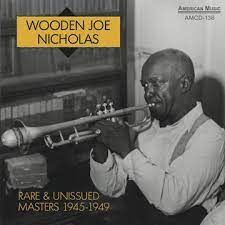
Daily Dose Of Jazz…
Louis Keppard was born February 2, 1888 in New Orleans, Louisiana and was the older brother of cornetist Freddie Keppard. The guitarist played in the Cherry Blossom Band before leading his own group, the Magnolia Band, which included King Oliver and Honore Dutrey among its members.
He played with Papa Celestin’s Tuxedo Brass Band, Manuel Perez, and followed that residency with the Olympia Orchestra alongside Freddie. In 1917 he moved briefly to Chicago, Illinois but returned soon after. Playing in several New Orleans brass bands, Louis performed as an alto hornist and guitarist from the 1920s through the 1950s, including in the Gibson Brass Band and the Young Excelsior Brass Band.
Keppard’s style of “shuffle rhythms” was an influence on Danny Barker. He recorded with Wooden Joe Nicholas in 1949, and retired from music some time after 1962.
Guitarist, tubist and alto hornist Louis Keppard, who led a band but never recorded as a leader, died in his hometown sixteen days after his 98th birthday on February 18, 1986.
More Posts: alto horn,guitar,history,instrumental,jazz,music,tuba
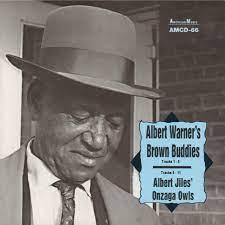
Daily Dose Of Jazz…
Albert Warner was born on December 31, 1890, in the Tremé neighborhood of New Orleans, Louisiana. Though his father was a string bass player, he didn’t seriously pick up the trombone until he was twenty-two years old. Taking lessons from one of his half-brothers, Ulysses Jackson, as well as Arthur Stevens and Honoré Dutrey. His main influences in his youth came from hearing Freddie Keppard, Vic Gaspard, and Baptiste Delisle.
His first professional jobs were playing for dance bands, including those led by “Big Eye” Louis Nelson, Kid Rena, Wooden Joe Nicholas, Buddy Petit, and Chris Kelly. In 1932 Warner joined the Eureka Brass Band and remained a regular member of this group until his death in 1966. His musical interplay with Charles Sonny Henry in the Eureka band during the late 1940s and 1950s is remembered by many for its intricacy and beauty.
The early Forties saw Albert playing and recording with Bunk Johnson and George Lewis. He would record often throughout the 1950s and in the Sixties he could be found playing frequently at Preservation Hall, accompanying the Preservation Hall band on a number of tours with Kid Sheik and the Eureka Brass Band. He went on one Memphis tour with Billie and DeDe Pierce in 1965.
Warner left behind a number of sessions recorded and released by Commodore, Pax, Folkways, Atlantic, and American. The album Bunk Johnson 1942/1945, Eureka Brass Band and The Eureka Brass Band in Rehearsal, a number of recordings with Charlie Love, Peter Bocage with His Creole Serenaders and the Love-Jiles Ragtime Orchestra, released by American. He also appeared on other American label albums recorded by Punch Miller, John Casimir, Kid Sheik and appeared on Atlantic’s Jazz at Preservation Hall series.
Trombonist Albert Warner, who performed in the traditional and brass band genres, transitioned on September 10, 1966 in New Orleans.
More Posts: bandleader,history,instrumental,jazz,music,trombone
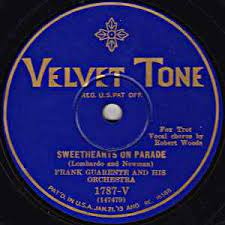
Daily Dose Of Jazz…
Frank Guarente was born Francisco Saverio Guarente on October 5, 1893 in Montemiletto, Italy and received formal training in music before emigrating to America in 1910. He settled in Allentown, Pennsylvania, where a brother of his lived.
Relocating to New Orleans, Louisiana in 1914, where he took a job in a bank and associated with ethnically Italian musicians such as Nick LaRocca and Tony Parenti. He met King Oliver and eventually started getting gigs with New Orleans brass bands. He played at Tom Anderson’s club and toured Texas under the name Ragtime Frank with his ensemble, the Alabama Five.
Serving in the United States Army during World War I in 1917, then played in Philadelphia, Pennsylvania with Charlie Kerr and Eddie Lang. Putting together his own group in 1921 in New York City, which included Arthur Schutt and Chauncey Morehouse. Soon after, Paul Specht picked his players up to join a larger orchestra, and Guarente played with Specht on European tours through 1924.
Leading a Specht side group called The Georgians, they recorded between 1922 and 1924 in the style of the Original Dixieland Jass Band. He left Specht in 1924, to form his own group, The New Georgians, that toured Europe and remained active until 1927. This he followed by working in England with the Savoy Orpheans and ensembles associated with Bert Firman.
Returning to the United States in 1928, he joined Specht’s orchestra again, playing until 1930. He joined Victor Young’s band in 1930, remaining there until 1936, and also played with Jimmy Dorsey, Tommy Dorsey, Jack Teagarden, Bing Crosby, and The Boswell Sisters on record and radio. In 1937 ill health forced him to stop performing and on July 21, 1942 in New York City, trumpeter, composer and bandleader Frank Guarente transitioned at the age of 48.
More Posts: history,instrumental,jazz,music,trumpet


